After one of the most turbulent periods in recent history, it was audacious inaugural poet Amanda Gorman who laid out our challenge: “We will not march back to what was, but move to what shall be, a country that is bruised, but whole, benevolent, but bold, fierce and free.”
We have a new administration in Washington, D.C., and in Springfield, we have new Illinois House Speaker Chris Welch, and relatively new Illinois Senate President Don Harmon. Yet, we remain a people divided, torn asunder by a politics that has become horribly hyperpartisan. How did we get here, and how do we move toward the new dawn Gorman compelled us to create?
More people believe it will take some systemic, bold change. U.S. Senate Democrats, for instance, just joined their House counterparts, making their first bill one that broadens voting access and requires states to adopt independent redistricting for congressional districts.
Gerrymandering absolutely contributes to our extreme polarization. When partisans draw districts to benefit one political party or the other, one of the toxic outcomes is electing politicians who only ever worry about primary competition, about being taken out by someone on the wing of their party. This tends to drive politicians of both parties to take extreme positions.
As my friend and former colleague Solomon Lieberman recently posted on Facebook, “Insiders claim that many Republicans couldn’t vote their conscience on impeachment because they are scared stiff of Trumpers retaliating against them in their next primary.”
Lieberman is the president of Venn Innovations and the executive director of the Institute for Political Innovation, a cross-partisan, not-for-profit working to achieve change in American politics. Both Venn and the institute were founded by Katherine Gehl, a former food company CEO, entrepreneur and co-author of “The Politics Industry” with Harvard Business School Professor Michael Porter. Gehl tells anyone who will listen that our politics isn’t broken—it’s fixed.
Gehl and her crew believe party primaries are a huge problem, as are our elections, in which the candidate with the most votes wins. As we all know, in a multicandidate race, someone with the most votes might not have majority support.
We also all know few people participate in primaries. Fewer of us feel connected to one major party or the other. In Illinois and many other states, many of us are turned off by primaries because we’re required to ask for a Democrat or a Republican ballot and can only vote in one party’s elections. Those primaries, then, are decided by a small number of the most partisan voters who elect candidates beholden to people on the edges of their respective parties.
Gehl, Lieberman and others believe a key solution to these problems is a two-step innovation they call “Final Five Voting.”
In a nutshell, states would need to end party primaries and adopt open ones, allowing the top five candidates of either party to advance to the general election. Then, a form of ranked-choice voting would kick in. In general elections, voters pick their favorite, as always, but they also would have the option to rank the remaining candidates. If a candidate doesn’t win an outright majority, then the last-place candidate is dropped and those who ranked that candidate first would have their second choices counted, and so on. This sort of series of instant runoffs would result in winners who have more support from more voters.
The theory is that opening up primaries and allowing ranking incentivizes politicians to appeal to a broader base of voters, stay away from campaign muck and govern from that broader base because they are always hoping to be a voter’s second or third choice, if not their first.
“It’s a reform to fuel cross-partisanship and a healthy democracy,” Lieberman says. “If you fix the primary, then the general election really matters.”
Changing both at the same time transforms the incentives in politics by boosting competition, Gehl says. It’s a sort of “free-market politics that delivers innovation, results and accountability.”
The Final Five concept was adopted in Alaska in November, and more states are considering opening up primaries or adopting some form of ranked-choice voting.
If we remove partisanship from the districts that form the foundation of our democracy and inject more competition and broader voter support into our elections, perhaps we’ll move toward that bold, fierce and free nation poet Gorman sees. Surely the time is now to experiment in order to strengthen our democracy.
This column originally appeared in Crain’s Chicago Business.
